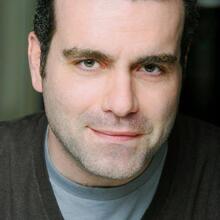Television loves television and everyone loves Tina Fey. The former has been apparent at least since the first time Laura Petrie sent her hubby Rob off to work as a writer on “The Alan Brady Show,” the fictional television series within a television series on “The Dick Van Dyke Show.” The latter became abundantly clear last fall when Fey’s trademark glasses seemed to be on every magazine cover thanks in no small part to her turn as hapless vice-presidential candidate Sarah Palin on “Saturday Night Live.”
So it would only seem logical that a television show about television starring Tina Fey couldn’t help but be a hit, right? Wrong. For all of Fey’s popularity and the Emmys heaped on her show, her brainchild, “30 Rock” remains mired in ratings mediocrity.
For those of you who have never seen the show and, apparently, that is more than a few of you, it centers on the cast and crew of “TGS,” a fictional sketch comedy series in the vein of “Saturday Night Live.” Fey plays Liz Lemon, the head writer, who spends the greater part of her time trying to manage the chaos of her professional life, while stumbling from one bad relationship to the next. This may sound eerily similar to the iconic Mary Richards and crew of “The Mary Tyler Moore Show,” but “30 Rock” takes it as a starting point to create something: a show within a show for the new millennium.
“30 Rock” seems to revel in pilfering from a multiplicity of pop culture sources and turning them on their heads. One ingenious example occurs in an episode in which the narrative and cinematographic style of Milos Forman’s “Amadeus” is mapped onto a story about “TGS” star Tracy Jordan’s attempt to develop an adult video game in order to secure the admiration of his children. (Jordan is played by the absurdly talented Tracy Morgan.) One of the show’s greatest strengths is this unyielding self-awareness: the show is conscious that everything it is doing has already been done before. This edgy, referential style combined with its manic pacing and swift, peppy score contribute to a feeling of detached hipness.
However, its deconstructive irony is only a veneer: the true beauty of the show lies in its fierce commitment to authentic characterizations. Unlike such structurally innovative shows as “Seinfeld,” which never let its audience forget that it was in on the joke and consequently seemed to prohibit any significant emotional investment, “30 Rock” never gets bogged down in its own slickness. The writers and performers have a concern for the humanity of their characters that overrides the show’s formal conceits.
All the standard character types are present: the narcissistic boss, the blonde bimbo, the Bible-belt cracker, yet the actors and writers of “30 Rock” are not satisfied with mere caricatures, as is often the case for TV comedies. Instead, the show does it the hard way, presenting a collection of fully realized personalities, who never lose an ounce of their comedic edge by virtue of their humanity.
Alec Baldwin’s adroit portrayal of network executive Jack Donaghy illustrates the shows commitment to authenticity. Jack Donaghy is a role that, at first glance, doesn’t need to be any more than the typical high-status buffoon on the order of the incompetent middle-manager Michael Scott of “The Office.” Yet Baldwin and the writers have created a character with nuance--one who is both competent in his job (something verboten in television comedy characters in positions of leadership) and concerned about his colleagues; all the while never losing his searing wit and enormous ego. “30 Rock” finds its comedy in the truth of its characters' humanity rather than trying to create humor out of stereotypes and clichés.
Ultimately, though, it is Fey herself who is the heart and soul of the show. Fey has been a media darling for years, from her work helming the Weekend Update anchor desk on SNL, to her starring turns in the box office hits “Mean Girls” and “Baby Mama.” Her Palin appearances last fall cemented her position as one of the most recognizable and powerful women in show business. Yet for all of her personal success, “30 Rock” has yet to find the same kind of popularity as its creator, writer and star.
Perhaps this is because Tina Fey, the glasses-wearing, working mom, seems to be better able to walk the line between hip self-conscious irony and human vulnerability, while “30 Rock,” with all of its external gloss, jump cuts and breakneck pacing, might be off putting for a first-time viewer. This is a shame, as the show has so much more to offer than quick one-liners and snappy editing. Beneath its irreverent façade lays an honest and always hilarious account of human frailty with which all of us can identify.
Just as Tina Fey is more than just her glasses, so her show is far more than just its slick packaging.








